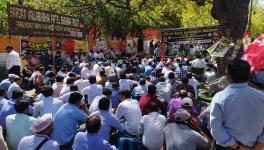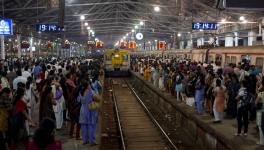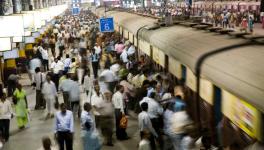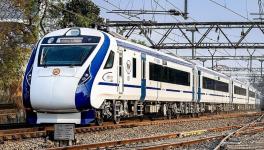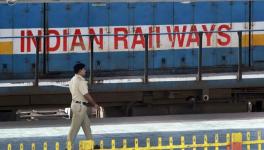Parliamentary Panel Seeks Improved Catering Services in Rail Premises
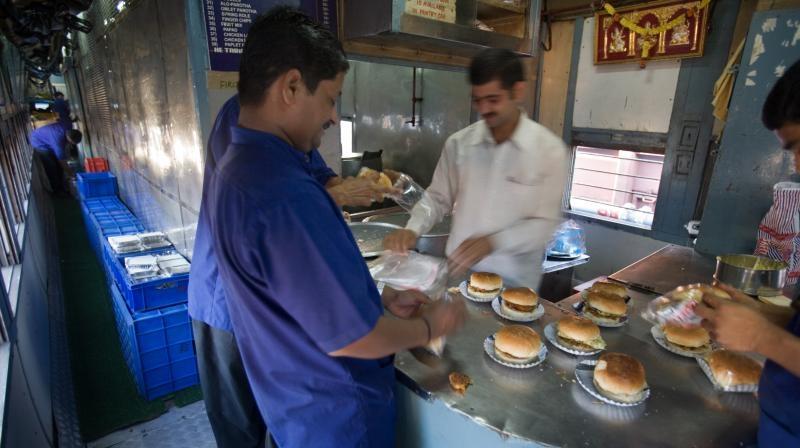
Taking note of the increased complaints from the passengers against the quality of the food in the rail premises, a parliamentary committee has asked the Railways to undertake stringent measures to address the issue.
As the trains are the affordable means of transportation for millions of passengers in the country, it becomes imperative on the part of Indian Railways to provide fresh, hygienic and good quality catering services and pure drinking water to their travelling passengers who extend their continued patronage to the Railways, the Standing Committee on Railways opines in its reports.
Critically examining the catering policy of the Railways, the committee headed by TMC MP Sudeep Bandopadhaya noted that most of the complaints of the passengers pertain mainly to catering services – specifically to hygiene and quality of the food served to them onboard and at stations. Expressing its unhappiness, the committee observed that out of 80 mega kitchens proposed to be constructed, only 16 were planned to be constructed in 2017. Further, to its dismay, the committee found that only 5 mega kitchens have been completed so far.
The committee observed that if Railways intend to provide good quality hygienic foods to their passengers, they will have to focus on timely construction of the base kitchens. The Committee has emphasised narrowing the time gap between food preparation and its distribution, and has asked for coordination between the agencies involved to ensure that prepared foods be as fresh as possible and reach the customers within the shortest time gap.
The committee also stressed on the need to complete remaining base kitchens expeditiously to satisfy the need of growing number of passengers.
Despite the various mechanisms initiated by Railways to address the complaints, the number of complaints of passengers have not decreased. The attribution of the Ministry that flooding of complaints is due to Twitter, social media etc., was not acceptable to the committee, as prior to Twitter and social media, plenty of complaints did not reach the Railways, stated the report, and recommended stringent measures to contain all the grievances.
Taking note of the presence of unauthorised vendors in the rail premises, the committee has observed that it is not only causing loss of revenues to the Railways, but also poses a health hazard to the passengers. Seeking remedial measures to check unauthorised vending both in trains and at stations, the committee asked the national transporter to look into the probability of connivance of its officials with unauthorised vendors and said the penal provisions for these offences should be strengthened to get results.
However, leaving the report aside, the fact remains that most of these unauthorised vendors are poor people trying to earn their living by selling eatables, water etc. on stations and in the trains. While no one is advocating selling of adulterated drinking water or for that matter any spurious goods, one cannot deny the fact that these vendors are from disadvantaged sections of the society, who need sympathetic considerations.
The committee notes that during earlier catering policies, the catering services were shifted from IRCTC to Zonal Railways and vice versa, but the basic problems were not addressed. The same set of contractors, who were in Railways catering, went to
IRCTC and came back to Railways. Then, with the change in policy, the contractors
with their same products and services remained the same. Based on the feedback, complaints and other information that the Railways got from time to time, they brought in the new Catering Policy, 2017 which aims to remove anomalies that the earlier policies
had overlooked. The committee appreciated this move of the Ministry, and hopes that the new policy will be implemented efficaciously to benefit the passengers at large.
With a view to ensure good and hygienic catering services, the monitoring mechanism of complaints should be strong and strengthened, with a redressal in a time-bound manner.
In a separate report, Comptroller and Auditor General of India (CAG) reviewed the infrastructure facility at 15 major stations, and found that station development plan does not include measures to ensure timely arrival of trains. The report has noted that expansion of rail infrastructure with measures like providing platforms with adequate length for facilitating easy boarding/de-boarding of the passengers, with longer lengths, is not part of the station development plan. CAG has observed that the lack of sufficient facilities for maintenance of trains and limited yard capacity at stations – the key factors which can significantly contribute in timely arrival and departure of trains on the platforms – are missing in the station development plans.
According to this report, the station development plan mainly focuses on the facilities for the passengers on the station premises and facade of stations, and not on removing constraints and bottlenecks for ensuring timely arrival and departure of the trains to/from the stations, which should be one of the most important parameters of the quality of service being provided to the passengers. Fifteen stations falling on the routes with heavy passenger traffic were selected as sample for this audit. These stations are New Delhi, Patna, Mughalsarai, Old Delhi, Kanpur, Nagpur, Chennai, Vijayawada, Ahmedabad, Itarsi, Bhopal, Jaipur, Howrah, Mathura and Allahabad. The audit was conducted with an objective to assess whether the available infrastructure at selected stations is adequate for handling the present and expected traffic load. CAG examined the data of number of trains handled, platforms, washing pit lines and stabling lines in respect of these stations for March 2007, March 2012 and March 2017, and observed that there was not enough improvement to handle the number of trains on these stations over a period of time.
Decongested line at a station is largely dependent on factors like adequate number and length of platforms and tracks, proper interlinking of tracks, adequate lines for stabling, and maintenance of passenger trains and obstacle-free movement of trains without any permanent speed restrictions.
CAG noted that line congestion results in not only detention of trains and loss of punctuality, but also sub-optimal use of rolling stock. Detention of trains ultimately results in poor quality service to the passengers. Looking into the impact of deficiencies in the existing infrastructure, CAG observed that it affected smooth and efficient running of the trains.
Indian Railways is one of the world's largest railway networks in the world comprising 121,407 km of track length for a route of 67,368 km and 7,349 stations. In 2016-17, Railways carried 22.24 million passengers per day, and operated 13,329 passenger trains every day.
(Arun Kumar Das can be contacted at akdas2005@gmail.com)
Get the latest reports & analysis with people's perspective on Protests, movements & deep analytical videos, discussions of the current affairs in your Telegram app. Subscribe to NewsClick's Telegram channel & get Real-Time updates on stories, as they get published on our website.










